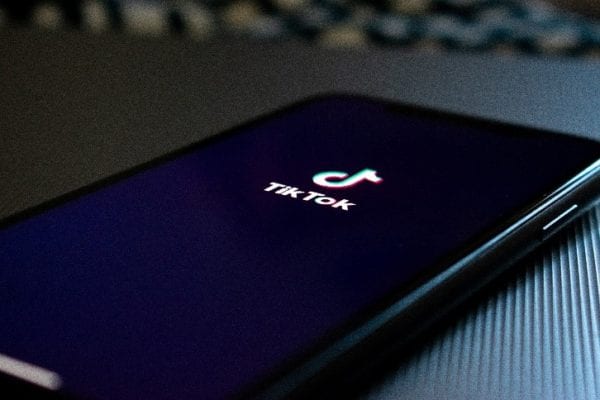
With the start of a new semester amidst a global pandemic, colleges have been implementing strict measures to contain the spread of COVID-19 on campus. The spike in cases at Notre Dame after the university invited students to attend in-person classes has influenced many other reticent colleges to quickly switch from in-person classes to an online platform. Under the strictest guidelines, students are expected to refrain from group gatherings where social distancing is not possible and to wear masks at all times (Hubler et al. 2020). Northeastern University went as far as to expel 11 students for breaking campus rules on partying (Faulds et al. 2020). Many universities have hotlines in place to report violations of university COVID-19 guidelines, while others have sent out memos encouraging students to report parties to campus officials. Yet university faculty can do little to survey or speak to what students are doing off campus. Students, however, have TikTok, a video social media platform that has recently gained popularity with teenagers and young adults, as an avenue for students to observe what their peers are doing, and, potentially, hold each other accountable for their actions.
The “duet” feature on TikTok allows users to react to other posts, while the “green screen” feature allows users to upload videos saved or viewed on their phones. Many have taken advantage of these features to publicly react to videos of student-held parties posted on TikTok, or upload screen recorded videos that others previously posted on their private Instagram or Snapchat accounts. While users on TikTok can control the “duet” option and choose to either disable or enable it, they cannot control screen recording of privately shared videos. Whistle blowing, known in some contexts colloquially as snitching, has become easier with students’ frequent use of social media. Some youth on TikTok, however, are torn between staying loyal to their peers and complying with campus social distancing rules.
One TikTok comedian claims in a video with 3.4 million views that “If I receive word of any parties going on the campus I attend, I’m telling.” In a video that reached half a million views, TikTok user Sean Merlin called out his fellow University of Miami students, who are shown packed together in a dorm room, in a duet video (Lieberman et al. 2020). Animosity spread on the Cornell campus after a college freshman posted a Snapchat private story (originally posted by another account) of a dorm party. Angry students have gone as far as creating online petitions to rescind the admission acceptance of students that hosted dorm room parties (Closson 2020). In one petition, directed at Cornell freshman, the “Concerned Student Coalition” claimed that “We need to hold these students accountable for their actions. If this is the type of behavior that Jessica […] is willing to publicly show, she does not need to be a student at Cornell.” The student has reported that she has received numerous threats and criticism from Cornell students (Closson 2020).
While some are adamant about protecting their campus, others are weary of losing friends. Some faculty members have advised against snitching, out of fear that animosity and suspicion will spread on campus and disrupt studies (Closson 2020). “Nobody likes snitching—it’s not comfortable,” comments a Cornell student in a New York Times article. Another Cornell student uploads a previously recorded video from a frat party to her TikTok, under which a user comments “What did colleges expect? That age group is known for engaging in risk taking behavior as well as needing socialization.” After all, these colleges invited students back on campus with an awareness of the risk of disease spread, claims lawyer Norman Seigel (Hubler et al. 2020). According to mental health professionals, socializing is an important part of development for college students and it is unrealistic to expect that students will completely refrain from partying (Faulds et al. 2020). TikTok influencers aren’t setting the best examples for their followers, either. Teenage stars Bryce Hall and Blake Gray have recently been fined for two large house parties, for which they posted updates on TikTok (Aslemash et al. 2020).
Whether it is unrealistic for young adults to refrain from socializing or not, TikTok users are showing others how they really feel about campus COVID-19 guidelines, socially ostracizing and shaming those who don’t comply. Sometimes these reactions have consequences, sometimes they fade into the never-ending stream of videos on this platform. The larger point is that the use of this technology to publicize one’s own experiences and opinions has proven to be a double-edged sword—it also grounds and provokes the reactions of those observing this behavior as if was occurring right in front of them. How should one react when they see that laws are broken, or that safety guidelines are being flouted in a pandemic that has cost millions of lives? The use of TikTok to broadcast one’s experience is a clear case of speech and expression, but so is the reaction of others to these original posts on their own TikTok feeds. Might their sharing of these videos, with explicit or implied criticism, merely be another form of speech or expression? All of this expression and commentary seems perfectly legal, but the ethical question still remains: how ought we to react, and speak to others, about lapses in judgment that we observe? Would social shaming achieve the sort of consequences that we need to prevent guideline-breaking in the future months and years of this global pandemic? While TikTok videos come and go, the deeper ethical issue of sharing and shaming online for supposedly greater moral goods continues to reappear in our interactions with our online friends.
Discussion Questions:
- What values are in conflict in the sharing and shaming of pandemic violating TikTok users?
- Does a TikTok user who shares, with or without comment, a video from someone’s private feed, violate some ethical norm or moral value? How far must we respect one’s controlled social media content, when “friends” lists go into numbers vastly exceed “real-world” friends that surround us?
- Ethically speaking, are there better or worse ways to call out TikTok users who are violating pandemic guidelines at their schools or institutions? Explain.
- What ethical principles ought to guide the online criticism of those displaying risky behaviors in a serious global health crisis?
- How much control ought we to have over materials—words, pictures, videos—that we post on our social media accounts? Is it an ethical failure on the poster’s part to not anticipate certain reactions or uses of material posted?
Further Information:
Asmelash, L., & Mossburg, C. (August 29, 2020). “TikTok stars Blake Gray and Bryce Hall charged for hosting parties during the Covid-19 pandemic.” Available at: https://www.cnn.com/2020/08/28/us/blake-gray-bryce-hall-tik-tok-parties-charge-trnd/index.html
Closson, T. (September 2, 2020). “’Nobody Likes Snitching’: How Rules Against Parties Are Dividing Campuses.” Available at: https://www.nytimes.com/2020/09/02/nyregion/colleges-universities-covid-parties.html
Faulds, C., Molloy, M., LaTona, F., Torchinsky, R., Vann, C., Sondgeroth, D., Lempres, D. (September 9, 2020). “’So much for honor’: Despite COVID cases, college students partied Labor Day weekend away.” Available at: https://www.usatoday.com/in-depth/news/education/2020/09/08/covid-cases-college-parties-labor-day-weekend-fall-2020/5710934002/
Hubler, S., & Hartocollis, A. (August 22, 2020). “Stop Campus Partying to Slow the Virus? Colleges Try but Often Fail.” Available at: https://www.nytimes.com/2020/08/22/us/college-campus-covid.html
Lieberman, J. (August 27, 2020). “Tik Tok video shows UM students partying in dorms.” Available at: https://www.themiamihurricane.com/2020/08/16/tik-tok-video-shows-um-students-partying-in-dorms/
Authors:
Michaela Urban & Scott R. Stroud, Ph.D.
Media Ethics Initiative
Center for Media Engagement
University of Texas at Austin
October 21, 2020
Tumblr Image: Kon Karampelas / Unsplash
This case study is supported by funding from the John S. and James L. Knight Foundation. It can be used in unmodified PDF form for classroom or educational settings. For use in publications such as textbooks, readers, and other works, please contact the Center for Media Engagement.
Ethics Case Study © 2020 by Center for Media Engagement is licensed under CC BY-NC-SA 4.0



